Supplements for Building Consistency and Reducing Chronic Procrastination
Introduction
Procrastination is often misunderstood as laziness or a lack of willpower. But in reality, it’s rarely about discipline—it’s about biochemistry and stress regulation. When your energy dips, your focus scatters, or your emotions spike, your brain starts searching for relief instead of action. Over time, this pattern becomes chronic: you know what to do but can’t make yourself do it.
To build consistency, your nervous system needs to feel safe, your energy needs to be stable, and your neurotransmitters need to be balanced. Supplements can play a big role here—not as magic pills, but as tools to create biological conditions for reliable focus, emotional calm, and motivation.
Let’s explore the science of procrastination and the key supplements that can help you stay consistent without burnout.
Looking for supplements for This? Click here.
The Biochemistry of Inconsistency ⚡

Every productive day depends on a delicate balance between stimulation and calm. When your neurotransmitters—especially dopamine, GABA, serotonin, and norepinephrine—fall out of rhythm, consistency becomes impossible.
Dopamine fuels excitement and anticipation. Serotonin keeps you emotionally grounded. GABA keeps your thoughts from spiraling. Norepinephrine boosts alertness. Together, they form your motivation circuit.
If dopamine is low, you can’t feel motivation. If cortisol is high, you can’t focus. If GABA is low, you can’t relax enough to start.
This is why supplements that regulate neurotransmitters and stress hormones often help more than rigid productivity hacks—they address the biological bottleneck, not just the behavior.
Dopamine-Boosting Nutrients for Motivation 🎯
Dopamine is your brain’s drive molecule. It turns ideas into enthusiasm and effort into reward. Chronic procrastinators often have sluggish dopamine systems—either from stress, poor sleep, or overstimulation (like scrolling or caffeine overload).
🌿 L-Tyrosine helps by acting as a precursor for dopamine. It’s converted into L-DOPA and then dopamine, enhancing your ability to focus and follow through, especially under pressure. Many find it makes starting difficult tasks easier because it restores mental clarity.
☀️ Rhodiola Rosea supports dopamine and serotonin balance while lowering stress hormones. It increases energy and optimism without overstimulation. Taken in the morning, it helps you transition from fatigue to purposeful energy.
🐟 Omega-3 fatty acids (EPA and DHA) improve dopamine receptor sensitivity, meaning your brain can feel rewarded again for progress. This helps rebuild momentum, a critical piece of consistency.
Together, these nutrients help your brain rediscover the emotional reward in steady effort—something chronic procrastinators often lose.
Stress-Modulating Compounds for Emotional Regulation 🌿
Consistency depends on emotional stability. When cortisol spikes, your logical brain shuts down, and avoidance takes over. The right adaptogens and minerals help keep your stress response balanced.
🌱 Ashwagandha reduces cortisol by up to 30% in clinical studies. It calms the amygdala, the brain’s fear center, helping you stay centered under pressure. People describe it as “emotional armor”—you still feel stress, but it doesn’t control you.
🪶 Phosphatidylserine helps regulate the hypothalamic-pituitary-adrenal (HPA) axis—the system that controls cortisol release. It improves focus under stress and supports recovery after mental exertion.
💧 Magnesium Glycinate or Threonate calms an overactive nervous system. It helps your brain respond, not react. Many notice improved sleep and a more even mood—vital for showing up consistently.
When stress becomes manageable, the brain stops seeing work as a threat. That’s the foundation of real consistency.
Looking for supplements for This? Click here.
GABA and Calm Focus 🧘
GABA (gamma-aminobutyric acid) is your brain’s relaxation neurotransmitter. It keeps neural activity balanced and prevents mental overstimulation. Without enough GABA, you feel wired, tense, and unable to focus.
🌸 L-Theanine, found in green tea, increases GABA and alpha brain waves, producing calm alertness. It’s ideal before deep work or study sessions because it promotes focus without fatigue.
🌿 Taurine supports GABA receptors and stabilizes the nervous system. It’s especially helpful for people who feel anxious when starting tasks.
🌼 Lemon Balm gently boosts GABA activity and lowers cortisol. It’s been shown to reduce anxious restlessness—perfect for those who overthink instead of starting.
Calm isn’t the opposite of productivity—it’s the condition that allows focus to emerge naturally.
Energy and Mitochondrial Support 🔋
Inconsistency often hides behind fatigue. If your cells can’t produce enough energy (ATP), your willpower doesn’t stand a chance. Supporting mitochondrial function keeps both your body and brain energized throughout the day.
🔥 Acetyl-L-Carnitine (ALCAR) improves mitochondrial energy and mental clarity. It helps you transition smoothly from thought to action, particularly when you feel mentally slow.
💥 Coenzyme Q10 (CoQ10) supports cellular energy production and protects neurons from oxidative stress. It’s a quiet powerhouse for mental endurance.
🍊 B-Complex Vitamins (especially B6, B9, and B12) are co-factors in energy metabolism and neurotransmitter synthesis. Without them, motivation and consistency collapse.
These nutrients give your brain the energy it needs to sustain effort—so consistency feels less like a fight and more like a flow.
Serotonin and Emotional Steadiness 🌤️
Serotonin helps you stay emotionally balanced and reduces the fear-based overthinking that fuels procrastination.
🌙 5-HTP supports serotonin synthesis and helps improve mood stability. When serotonin is balanced, you feel capable and grounded rather than anxious or discouraged.
🥥 Magnesium and Vitamin D3 both enhance serotonin activity and receptor sensitivity, making them key allies for emotional consistency.
When serotonin and dopamine are in harmony, motivation no longer swings between extremes—you can stay steady, not manic one day and unmotivated the next.
Adaptogens for Long-Term Resilience 🌱
Adaptogens help your body adapt to physical and emotional stress over time. They build resilience, not stimulation.
🌾 Rhodiola Rosea, already mentioned for dopamine, also enhances endurance and prevents burnout. It’s particularly useful for people who oscillate between bursts of productivity and exhaustion.
🌿 Eleuthero (Siberian Ginseng) boosts stamina and mental alertness. It’s gentle yet revitalizing—a long-term consistency ally.
🍃 Holy Basil (Tulsi) stabilizes cortisol and improves emotional resilience. It supports a sense of calm focus that helps you stay on track even when life feels chaotic.
Consistency is less about pushing and more about sustaining. Adaptogens help you stay in balance so your productivity becomes renewable instead of depleting.
Gut Health and Motivation 🦠
Up to 90% of serotonin and a significant portion of GABA are produced in the gut. Poor gut health—often caused by processed foods, chronic stress, or antibiotics—can lead to mood swings, fatigue, and lack of motivation.
Probiotics like Lactobacillus rhamnosus and Bifidobacterium longum improve gut-brain communication and boost neurotransmitter synthesis.
Fermented foods like yogurt, kefir, sauerkraut, and kimchi can support natural consistency by balancing your gut ecosystem, which directly impacts focus and emotional stability.
Your gut is not just your digestive system—it’s your emotional center. A calm gut supports a calm mind, and a calm mind takes consistent action.
Creating a Supplement Routine for Consistency 🕒
Building consistency with supplements is about rhythm, not volume. A steady daily routine is more effective than sporadic mega-dosing.
Here’s an example structure for a calm, focused day:
🌅 Morning:
Rhodiola Rosea or Eleuthero for energy and resilience
B-Complex with breakfast
Omega-3 for dopamine sensitivity
🌞 Midday:
L-Theanine for focus during work
Magnesium or Taurine if stress builds
🌙 Evening:
Ashwagandha or Lemon Balm for relaxation
Magnesium Glycinate for restorative sleep
Over time, this daily rhythm rewires your nervous system toward stability. The goal is to reduce highs and lows so that focus, motivation, and effort become effortless habits.
The Missing Piece: Self-Compassion 💛
No supplement can override self-criticism. Chronic procrastinators often punish themselves for inconsistency, which ironically increases cortisol and further paralyzes motivation.
When you combine nutritional support with self-kindness, your biology and psychology finally align. Supplements help your brain feel safe enough to act, while compassion keeps that safety intact.
Consistency grows from calm—not force.
The Holistic Formula for Consistency 🌿
True consistency happens when your brain chemistry, body energy, and emotional regulation work together. Supplements like L-Tyrosine, Ashwagandha, Magnesium, L-Theanine, CoQ10, and Omega-3s can create that internal environment—steady, calm, and motivated.
They don’t replace discipline; they make it sustainable.
Consistency isn’t about intensity. It’s about showing up without collapsing, acting without panic, and staying focused without burnout.
When your nervous system is balanced, you don’t have to force consistency. You become it. 🌱
Looking for online therapy ? Click Here.
References 📚
Panossian, A., & Wikman, G. (2010). Adaptogens in stress and fatigue: Regulation of homeostasis through mechanisms of action. Phytomedicine.
Kennedy, D. O. (2016). Cognitive function, brain energy, and nutritional influences. Nutrition Reviews.
Benton, D. (2001). The influence of nutrients on mental performance. Brain Research Bulletin.
Chandrasekhar, K., et al. (2012). A study of Ashwagandha in reducing stress and anxiety. Indian Journal of Psychological Medicine.
Streeter, C. C., et al. (2007). Yoga and GABA mechanisms for stress relief. Medical Hypotheses.
Wurtman, R. J. (2011). Neurotransmitter synthesis and mental performance. Nature Reviews Neuroscience.
Related Posts
-

Why Co-Dependency Feels Draining: Adrenal Fatigue and Supplements That Help
The adrenal glands are small but powerful organs that sit above your kidneys, acting as your body’s built-in stress managers. They produce hormones like cortisol and adrenaline that help regulate energy, mood, and resilience. When they’re overworked from chronic stress or emotional exhaustion, fatigue and imbalance follow. Supporting adrenal health naturally can help restore calm, energy, and hormonal balance. 🌿⚡
-

The Link Between Anxiety, Co-Dependency, and Natural Support
Anxiety feels like living in constant alert mode—your heart races, your thoughts loop, and your body can’t find peace. It’s the nervous system’s way of preparing for danger, even when none exists. Understanding what’s happening in your mind and body is the first step toward calming the storm and restoring balance. 🌿💫
-

Supplements That Support Dopamine and Serotonin in Co-Dependent Patterns
Serotonin is the neurotransmitter of calm, confidence, and contentment. When it’s balanced, you feel peaceful and emotionally grounded. When it’s low, anxiety, mood swings, and emotional dependence take over. By understanding serotonin’s role in emotional health—and how to support it naturally—you can rebuild inner stability, improve relationships, and cultivate lasting happiness from within. 🌞💫
-

How Emotional Exhaustion in Codependency Impacts the Nervous System
The nervous system is the body’s communication network, connecting the brain to every organ and muscle. It regulates stress, mood, and emotion through a delicate balance of electrical and chemical signals. When overwhelmed, it can become dysregulated—leading to fatigue, anxiety, and emotional imbalance. Understanding how to calm and strengthen the nervous system is key to healing from chronic stress and emotional burnout. ⚡🌿
-

What Is Co-Dependency? The Role of Brain Chemistry and Stress
Stress is more than a feeling—it’s a full-body experience that begins in the brain and ripples through every cell. When cortisol surges and the nervous system stays on alert, your body can’t rest or recover. Over time, this constant tension affects energy, focus, mood, and even immune health. Understanding stress chemistry is the first step toward breaking free from burnout and finding calm again. 🌿
-

Creating a Supplement Stack for Motivation, Energy, and Anti-Procrastination
Motivation is the fuel behind every meaningful achievement—but it’s not just about willpower. It’s a mix of mindset, brain chemistry, and momentum. When energy, focus, and purpose align, action feels natural instead of forced. Learn how to harness motivation as a daily state, not a fleeting feeling.
-

GABA and Procrastination: Supporting Calm Focus for Productivity
GABA is the brain’s natural calming messenger—a neurotransmitter that helps slow mental overactivity and ease stress. When GABA levels drop, focus fades, anxiety rises, and procrastination becomes more likely. By supporting GABA through nutrition, lifestyle, and supplements, you can restore calm clarity, improve focus, and take action with steady, balanced energy.
-

Ashwagandha and Procrastination: Lowering Stress to Improve Action
Science is the language of curiosity and discovery. It helps us understand the hidden patterns behind life, energy, and the universe. Through experimentation and critical thinking, science connects imagination to evidence—turning questions into knowledge. Whether through microscopes, molecules, or minds at work, science represents our endless pursuit of truth and innovation.
-

Neurotransmitters and Motivation: Supplements That Support Drive and Focus
Supplements can do more than boost physical health—they can also enhance mental clarity, focus, and motivation. Nutrients like omega-3s, magnesium, B vitamins, and adaptogens help balance neurotransmitters, stabilize mood, and support brain energy. When combined with good sleep, nutrition, and mindful habits, they can transform how your brain performs under stress.
-

How Stress Hormones Like Cortisol Fuel Procrastination (and What Helps)
Blood sugar isn’t just about physical health—it directly impacts focus, mood, and motivation. When glucose levels spike and crash, energy and attention do the same, fueling procrastination and brain fog. Learning how to stabilize blood sugar through balanced meals, mindful habits, and key nutrients helps keep your mind steady, focused, and ready to act.
-

Brain Fog and Procrastination: Supplements for Mental Clarity
Brain fog can turn even simple tasks into mental hurdles. When your thoughts feel slow and unclear, procrastination often follows—making focus and productivity seem impossible. This article explores the biochemical and lifestyle causes of brain fog and reveals the most effective supplements for restoring mental clarity, focus, and sustained energy.
-

The Link Between Low Energy and Procrastination: Can Supplements Help?
Neurochemistry shapes how we think, feel, and act. When neurotransmitters like dopamine, serotonin, and GABA fall out of balance, it can lead to fatigue, anxiety, or lack of motivation—fueling procrastination and low mood. Understanding the brain’s chemical communication system helps us find ways to restore focus, calm, and emotional stability through nutrition, mindfulness, and targeted supplements.
-

Why Do We Procrastinate? The Role of Dopamine and Supplements That Support It
Dopamine is the brain’s motivation messenger—the chemical that fuels focus, reward, and drive. When dopamine levels drop, even simple tasks can feel impossible to start. This article explores how dopamine shapes procrastination, motivation, and mental energy, along with natural supplements and daily habits that help restore balance and get things done.
-

Phosphatidylserine and Stress Reduction for People with BDD
Stress is more than a mental state—it’s a full-body experience that affects hormones, brain chemistry, and emotional balance. For people with Body Dysmorphic Disorder (BDD), constant tension and worry about appearance can overload the nervous system. Learning how stress works and finding ways to calm it is key to breaking the cycle of anxiety and self-criticism.
-

How Antioxidants Like Vitamin C & E Support Mental Health in BDD
Antioxidants are the body’s natural defense against stress and inflammation. For people with Body Dysmorphic Disorder (BDD), oxidative stress can worsen fatigue, anxiety, and emotional imbalance. Nutrients like Vitamin C and E help protect brain cells, boost neurotransmitter function, and support a calmer, clearer mindset—building a stronger foundation for recovery.
-

Ginkgo Biloba and Memory Support for BDD Recovery
Emotional regulation is the foundation of healing from Body Dysmorphic Disorder (BDD). When the nervous system stays in constant overdrive, even small stressors can trigger self-critical spirals. Learning to calm emotional reactivity helps restore clarity, confidence, and a sense of inner balance. By blending mindfulness, nervous system support, and self-compassion, you can retrain your brain to respond—not react—to emotion.
-

Alpha GPC and Cognitive Function in Body Dysmorphic Disorder
Mental fatigue can feel like your brain has hit a wall—thoughts slow down, focus fades, and motivation disappears. For people with Body Dysmorphic Disorder (BDD), chronic overthinking, emotional stress, and constant self-evaluation can deplete mental energy even further. Understanding what causes this cognitive exhaustion is the first step toward recovery—through rest, balanced nutrition, and targeted brain-supporting supplements.
-

N-Acetyl L-Tyrosine and BDD: Supporting Mental Clarity
Chronic stress doesn’t just affect your mood—it reshapes your brain chemistry, weakens focus, and fuels the obsessive thought loops common in Body Dysmorphic Disorder (BDD). Over time, constant cortisol elevation drains mental energy and emotional balance. Learning to recognize and manage chronic stress is essential to restoring mental clarity, self-compassion, and resilience.
-

Chamomile and Lavender for Calming Obsessive Body Image Thoughts
The nervous system is the command center of our emotional and physical world—and in Body Dysmorphic Disorder (BDD), it often operates in overdrive. Understanding how the brain and body communicate under stress reveals why intrusive thoughts feel uncontrollable. Learning to regulate the nervous system through calm practices, nutrition, and supplements helps restore inner balance and emotional safety.
-

Adaptogens for Body Dysmorphic Disorder: Rhodiola, Ginseng, and More
Rhodiola rosea, often called the “golden root,” is an adaptogenic herb renowned for boosting stress resilience and mental endurance. For individuals with Body Dysmorphic Disorder (BDD), Rhodiola may help reduce fatigue, regulate cortisol, and enhance emotional balance. By supporting both mind and body, this powerful plant promotes calm focus, improved mood, and renewed energy to face daily challenges.
-

B Vitamins for Stress Resilience in BDD: Rebuilding Calm from Within
Biochemistry is at the heart of every thought, emotion, and reaction we experience. In Body Dysmorphic Disorder (BDD), chemical imbalances in neurotransmitters like serotonin, dopamine, and GABA can amplify stress and distort self-perception. Understanding the biochemistry behind mood and stress regulation offers a path toward healing—bridging the gap between emotional experience and the body’s molecular balance.
-

Melatonin and Body Dysmorphic Disorder: Restoring Healthy Sleep Patterns
Melatonin, the body’s natural sleep hormone, plays a vital role in helping people with Body Dysmorphic Disorder (BDD) restore healthy sleep cycles. When anxiety and obsessive thinking interfere with rest, melatonin levels often drop, leading to more emotional reactivity and distorted self-perception. This article explores how melatonin works, why BDD disrupts it, and how natural supplementation—combined with mindful routines—can help the brain and body finally find calm at night.
-

Sleep Struggles with BDD: Supplements for Rest and Recovery
When you’re living with Body Dysmorphic Disorder (BDD), restful sleep can feel impossible—but the right supplements can help reset your body’s natural rhythm. From magnesium and L-theanine to 5-HTP and ashwagandha, these nutrients support relaxation, lower cortisol, and enhance melatonin production. This article explores how supplements can calm the mind, ease nighttime anxiety, and promote true restorative sleep for emotional and physical recovery.
-

5-HTP and Serotonin Balance: Could It Help with Body Dysmorphic Disorder?
Anxiety can feel like a storm inside the mind—restless, overwhelming, and hard to control. In people with Body Dysmorphic Disorder (BDD), anxiety often fuels obsessive thoughts and self-criticism, creating a painful cycle of worry and self-doubt. This article explores the biological roots of anxiety, the role of neurotransmitters like serotonin and GABA, and how natural strategies such as mindfulness, supplements, and nervous system regulation can restore calm and mental clarity.
-

Can Ashwagandha Help Ease Stress and Anxiety in Body Dysmorphic Disorder?
Neurotransmitters like serotonin, dopamine, GABA, and acetylcholine are the chemical messengers that shape how we think, feel, and react to stress. In Body Dysmorphic Disorder (BDD), imbalances in these neurotransmitters can amplify anxiety, obsessive thinking, and emotional distress. This article explores how restoring healthy brain chemistry through nutrition, supplements, and mindfulness can help bring clarity, calm, and emotional stability.
-

L-Theanine for BDD: Finding Calm in the Mind
Neurochemistry plays a central role in how we think, feel, and see ourselves. For those living with Body Dysmorphic Disorder (BDD), imbalances in neurotransmitters like serotonin, dopamine, and GABA can intensify anxiety, obsessive thoughts, and emotional distress. This article explores how regulating brain chemistry through supplements, mindfulness, and lifestyle changes can bring the nervous system back into harmony and restore inner calm.
-

Omega-3 Fatty Acids and Body Image Disorders: Supporting Emotional Health
Omega-3 fatty acids do far more than support heart health—they nourish the brain, stabilize mood, and may ease the emotional turbulence tied to body image disorders like BDD. This in-depth article explores how omega-3s regulate serotonin, dopamine, and inflammation, helping individuals reduce obsessive thoughts and rebuild self-acceptance. It also connects nutrition to therapy, mindfulness, and nervous system balance for holistic emotional healing.
-

Magnesium and BDD: Calming an Overactive Nervous System
Magnesium plays a crucial role in calming an overactive nervous system—something people with Body Dysmorphic Disorder (BDD) struggle with daily. This article explores how magnesium supports relaxation, emotional regulation, and stress reduction while diving into the science behind its connection to brain chemistry. It also examines how combining magnesium supplementation with therapy and breathwork can help rebalance the body’s stress response, reduce obsessive thought patterns, and promote lasting nervous system calm.
-

The Gut-Brain Axis and BDD: Why Probiotics Might Matter
The gut and brain are constantly in conversation — and that dialogue may shape how you experience Body Dysmorphic Disorder. By nurturing your microbiome with probiotics, prebiotics, and gut-healing nutrients, you can help rebalance serotonin, calm anxiety, and restore emotional stability from within 🧠🦠.
-
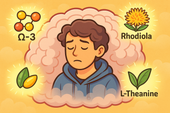
Brain Fog and Body Dysmorphic Disorder: Can Nootropic Supplements Help?
Brain fog often accompanies Body Dysmorphic Disorder, clouding focus and deepening emotional fatigue. Nootropic supplements like L-theanine, Rhodiola, and CoQ10 can help restore mental clarity, balance neurotransmitters, and bring calm energy back to the mind 🌿🧠.
-

How Stress Hormones Like Cortisol May Worsen Body Dysmorphic Disorder
Chronic stress floods the brain with cortisol — the hormone that keeps you on high alert. In Body Dysmorphic Disorder, this chemical overdrive fuels anxiety, distorts self-image, and traps the body in survival mode. Calming cortisol helps restore both peace and perspective 🌿🧠.
-

The Role of Neurotransmitters in BDD—and How Supplements May Help
Neurotransmitters like serotonin, dopamine, glutamate, and GABA shape how people with Body Dysmorphic Disorder perceive themselves. When these brain messengers fall out of balance, perception distorts — but targeted supplements can help restore calm, focus, and emotional regulation 🧠🌿.
-

What Is Body Dysmorphic Disorder? A Deeper Look at the Mind-Body Connection
Body Dysmorphic Disorder (BDD) isn’t just about appearance — it’s about perception. When brain chemistry, trauma, and stress distort self-image, the mind begins to see flaws that aren’t truly there. Healing starts by calming the nervous system and reconnecting mind and body 🪞🧠.
-
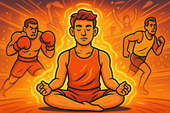
Keeping Calm in Competitive Sports: How to Train Your Mind, Body, and Chemistry for Peak Performance
Competitive pressure can overwhelm even the strongest athletes — but calm is trainable. By combining supplements like magnesium, L-theanine, and adaptogens with breathwork and mindset training, you can stay focused, balanced, and in control under any level of stress 🧠🏅.
-
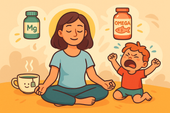
Supplements for Parents Facing Toddler Tantrums: Staying Calm When Little Emotions Run Wild
Toddler tantrums can drain even the most loving parent — but your calm is powerful. With the right supplements like magnesium, L-theanine, and ashwagandha supporting your nervous system, you can stay patient, grounded, and kind, even when emotions run high 🧸🌿.
-

Workplace Stress and Anger Management Support
Workplace stress can quickly turn into frustration — but calm is a skill you can train. By combining supplements like magnesium, L-theanine, and adaptogens with breathwork and mindset tools, you can stay focused, patient, and emotionally grounded no matter how intense the office gets 💼🌿.
-

How to Stay Patient With Family During Stressful Holidays
Holiday gatherings can stir up old stress and test your patience — but calm is possible. With nervous system support from magnesium, L-theanine, and adaptogens, plus mindful breathing and clear boundaries, you can stay centered, kind, and grounded even when family chaos unfolds 🎄💞.
-

Supplements to Keep Calm During Traffic Jams
Getting stuck in traffic doesn’t have to ruin your mood. With calming supplements like magnesium, L-theanine, and ashwagandha, you can train your body to stay relaxed and focused behind the wheel — turning gridlock into a moment of grounded patience 🚗🌿.
-
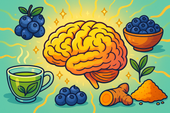
The Role of Antioxidants in Healing Brain Stress from Dissociation
Antioxidants protect the brain from the oxidative stress caused by trauma and dissociation. By neutralizing free radicals and supporting mitochondrial recovery, they help restore clarity, focus, and emotional balance — allowing the mind to heal at the cellular level 🌿🧠.
-
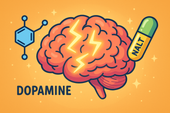
N-Acetyl L-Tyrosine (NALT) for Supporting Mental Clarity
N-Acetyl L-Tyrosine (NALT) fuels dopamine production — the neurotransmitter of focus and motivation. By supporting brain chemistry during stress, NALT helps restore mental clarity, energy, and alertness, making it easier to think clearly and feel present again ⚡🧠.
-

How Ginseng May Improve Focus and Energy in Dissociation
Ginseng helps combat the mental fatigue and fog that often come with dissociation. By supporting mitochondrial energy, balancing neurotransmitters, and regulating cortisol, it gently restores focus, motivation, and emotional presence — helping the mind reconnect with clarity and strength 🌿⚡.
-
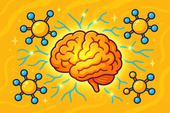
Phosphatidylserine and Dissociation: Supporting Cognitive Function
Phosphatidylserine helps calm the stress response by balancing cortisol, the body’s primary stress hormone. By lowering cortisol spikes, it protects memory, focus, and emotional stability — restoring clarity and mental presence for those struggling with dissociation 🧠🌿.
-
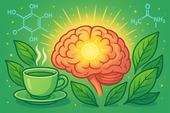
Can Green Tea Extract Help with Dissociative Brain Fog?
Green tea extract may help lift dissociative brain fog by supporting neurotransmitter balance, reducing inflammation, and enhancing energy at the cellular level. With its key compounds EGCG and L-theanine, it promotes calm focus, clarity, and emotional presence — helping you feel more alert and grounded 🍵🧠.
-
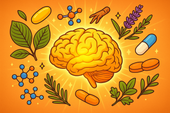
Building a Natural Supplement Stack for Dissociation Support
Building a supplement stack for dissociation means nourishing the brain and body back into communication. By supporting neurotransmitters, gut health, and energy balance through nutrients like magnesium, omega-3s, curcumin, and probiotics, you can help restore clarity, calm, and connection — one layer at a time 🌿🧠.
-

Chamomile and Lavender for Dissociative Anxiety Relief
Chamomile and lavender work together to calm dissociative anxiety by soothing the nervous system and restoring emotional safety. Their natural compounds balance cortisol, enhance GABA activity, and activate the vagus nerve — helping you feel grounded, connected, and at peace again 🌿💜.
-
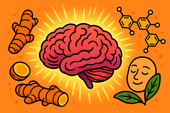
Curcumin for Inflammation and Mental Clarity in Dissociation
Curcumin, the golden compound in turmeric, does more than fight inflammation — it helps clear the mental fog often tied to dissociation. By calming neuroinflammation, balancing neurotransmitters, and supporting mitochondrial energy, curcumin can restore mental clarity, focus, and emotional presence 🌿🧠.
-
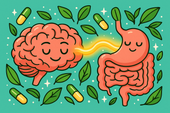
Probiotics and Dissociation: Exploring the Gut–Brain Axis
The gut–brain axis plays a vital role in emotional awareness and presence. When the microbiome is balanced, it supports serotonin production, vagus nerve activity, and calm focus. Probiotics help repair this connection — restoring safety, clarity, and the feeling of truly being in your body again 🌿🧠.
-
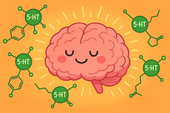
5-HTP for Dissociation: Supporting Serotonin and Emotional Stability
5-HTP helps bridge the gap between emotional numbness and stability by supporting serotonin production — the neurotransmitter that shapes mood, sleep, and sensory awareness. For people experiencing dissociation, 5-HTP may gently restore connection, presence, and emotional balance from the inside out 🌿🧠.
-
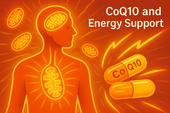
CoQ10 and Energy Support for People with Dissociation
Chronic dissociation often leaves the body running on empty — tired, foggy, and disconnected. CoQ10 helps recharge that system at the cellular level by restoring mitochondrial energy, reducing oxidative stress, and supporting the brain’s capacity to stay present. It’s energy medicine for both body and mind ⚡🧠.

















































